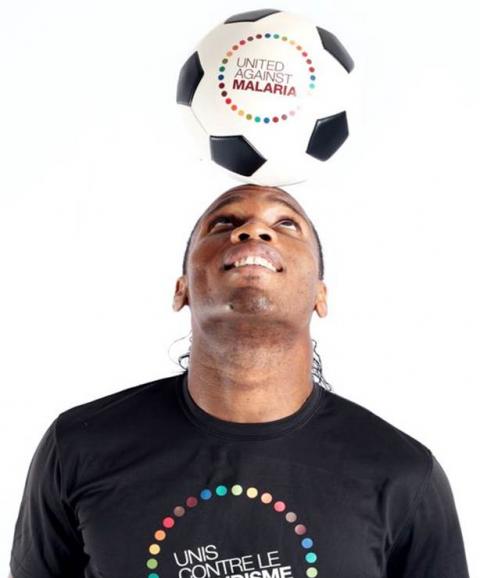You are in this section
GUEST BLOG: Breaking down barriers, building lasting partnerships
David Kyne, Founder and CEO at KYNE, writes a guest blog for International Inspiration (IN) about using sport as a vehicle to deliver health messaging, building on two unique and high-profile campaigns in Africa, both of which have provided key learnings on how sport can influence messaging and partnerships. The blog follows the Sport for Development: A Catalyst for Change’ conference, held at Wilton Park in June this year.
Through my work in managing the United Against Malaria (UAM), and more recently, the Africa United (AU) campaign against Ebola, I have seen first-hand the influence that sport, and particularly football can have on breaking down barriers and addressing social issues. Sport has the power to transform the behaviours of communities, transcend cultural barriers and deliver trusted sources of information around health issues. Of course, there are considerable challenges in delivering effective results, but there are a few critical principles for success in building an impactful sports communication and advocacy platform:
Establish a coalition of multi-sector partners to execute and expand the reach: The UAM and AU partners include government, football federations, players, private sector companies and non-profits/non-governmental organizations (NGOs), all working together to address global health challenges. To do this effectively, it is important that there is strong coordination between various partners and that each has a clearly defined, specific role to ensure a collaborative campaign structure. There also needs to be well-established campaign governance. While campaign partners bring different perspectives that can be harnessed to meet goals of the campaign, this can also lead to competition and contradicting priorities. It is essential to manage the differing expectations of partners to avoid conflict, and ensure transparency and accountability of partners. This allows partners and donors to feel ownership and commitment towards internal strategies, as well as public facing communications. With this framework in place, the coalition can achieve far more than any individual organisation alone.
Build a neutral campaign brand that is open source so that all partners can take and use as their own: A neutral brand that can live alongside partner brands but embodies an issue or campaign allows partners to adapt according to their specific needs or regional nuances, and distribute messages and materials through their own channels in a customized fashion. They can also be branded with the logos of other sponsors to facilitate distribution. Partners like the African Development Bank, the UK Department for International Development (DfID) and the Ministry of Health were able to distribute the messages of AU alongside their own brands to garner attention and recognition. This concept of a neutral branded campaign allows for the collaboration and support among different partners, showcasing a unified front in addressing a social need and often allows for a much broader reach that of a single organisation. The brand becomes trusted and ingrained in local communities but also resonates internationally.
Get local input and feedback: Utilising trusted spokespeople that have local influence, such as sports stars or celebrities, and delivering key messages in local languages tailored to the target community, is absolutely essential. Our AU communications materials were available in French, English, and Krio, and messages were tailored to each of the three affected Ebola regions. Some of the most famous football stars may not be as influential as a local hero. For example, Kei Kamara, who plays for the national team of Sierra Leone was integral to the AU platform and was able to give interviews in Krio, which greatly extended the reach and influence of the campaign messages.
Measure result and evaluate impact: A core component to building a successful campaign is being able to measure and evaluate the impact, ensuring that the messages resonate locally and internationally. UAM conducted a survey pre- and post-World Cup and found that Tanzania was one of the most supportive and engaged countries: 64% of people who viewed the UAM PSAs or heard a UAM radio spot recalled the key messages, and 6.6. million citizens took action to ensure their families slept under a mosquito net.
Sports communication platforms are incredibly powerful, reaching different countries and cultures, and highlighting social issues with a high degree of credibility due to the influence of these sports stars. Such campaigns are gaining more recognition for their ability to positively impact communities through behavior change, education and empowerment. Combining the power of sport, with the tenacity and commitment of multi-sector partners under a unified, neutral brand, leads to great progress in addressing global health challenges.
Find out more about KYNE.

